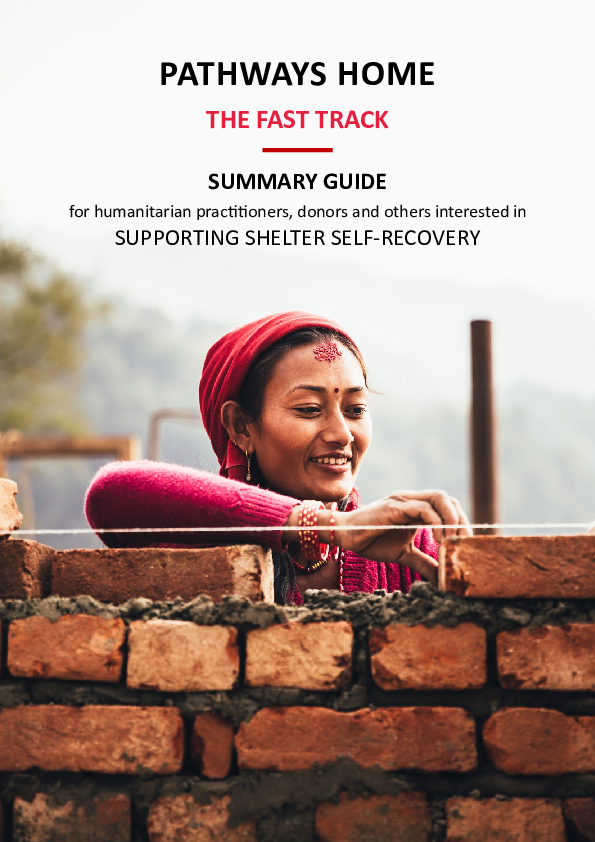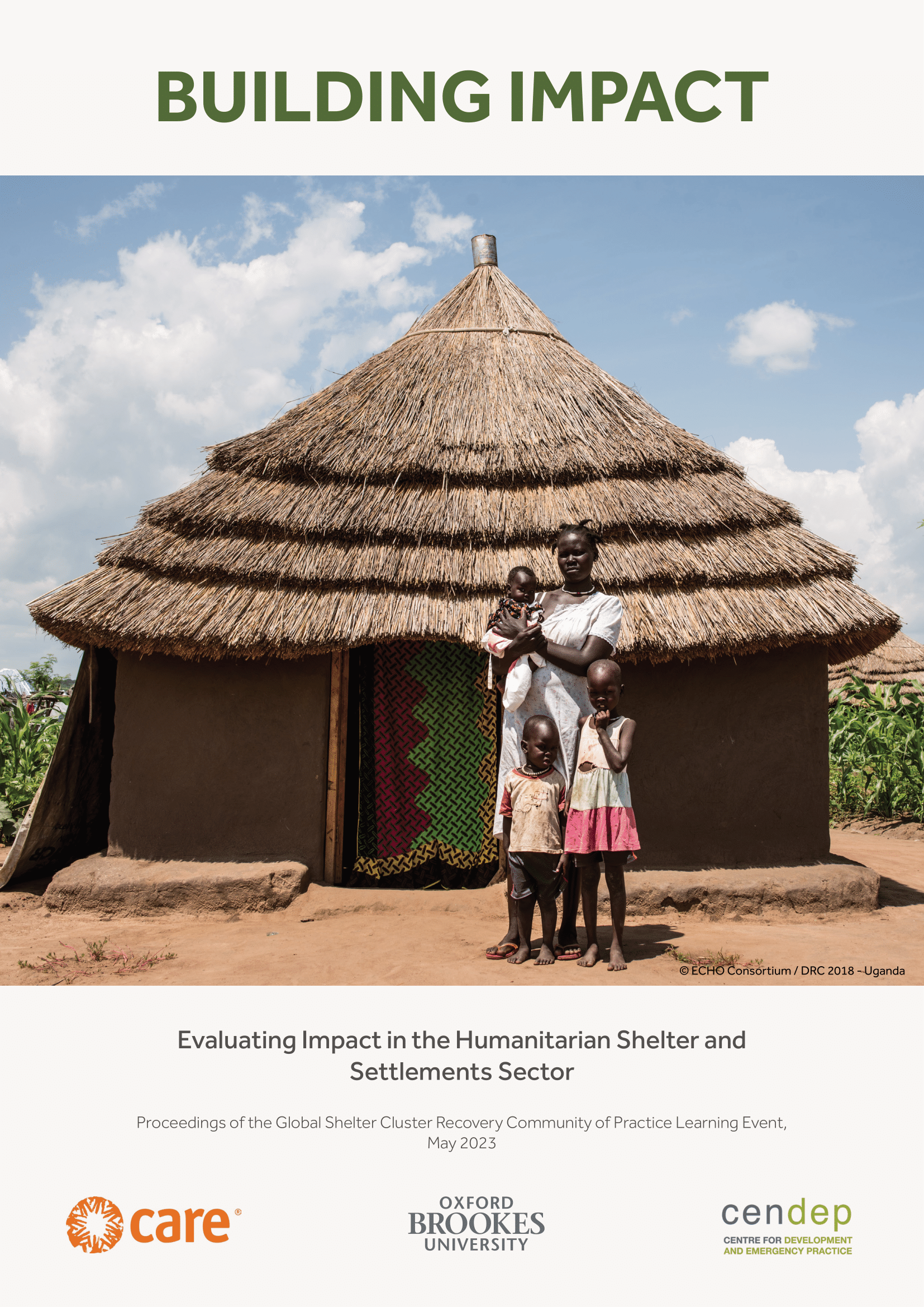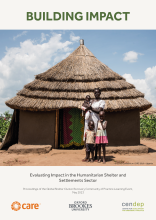Recovery Community of Practice
Featured Documents
Overview
The Global Shelter Cluster Recovery Community of Practice (CoP) is a platform to share and exchange information related to recovery from disaster and crisis. While humanitarian shelter and settlements responses largely consist of provision of emergency shelter and NFIs, CoP members are also concerned with how to create an enabling environment for the transition to recovery progress towards durable solutions and, ultimately, longer-term resilience and development. Recovery is also linked to other GSC priority topics such as localisation and an integrated and holistic approach to humanitarian shelter response. These concerns relate strongly to a recognition of the wider impacts of shelter assistance and the value of promoting approaches to sheltering that support affected populations’ self-recovery plans and priorities. The connections between adequate sheltering and health have been of particular interest.
The CoP is open to all individuals interested in these broad topics. The value of this initiative is dependent on the active participation of all members. The Recovery CoP was set up in late 2022 by members of the now superseded Promoting Safer Building (PSB) Working Group, more recently known informally as the Self-recovery Working Group. The CoP is co-led by Catholic Relief Services (CRS), CRAterre and CARE International UK (CIUK), with the close support of the Centre for Development and Emergency Practice (CENDEP) at Oxford Brookes University.
The self-recovery website gives further information about previous research activities, related publications and ongoing research and practice interests of Recovery CoP members. You can access many of the documents related to the PSB Working Group via the links below. In due course, these pages and resources will be accessible directly from the sections on the left of this page.
Protocol for Informing Choice for Better Shelter | Shelter Response Profiles | IEC materials | Context Analysis materials |
The functions of the Recovery CoP are evolving and include plans to:
- Facilitate discussion and knowledge exchange on shared areas of interest, building on the work of the PSB Working Group, through a common platform.
- Co-develop and share resources, guidelines, tools and emerging best practices in shelter & settlements and integrated programming related to recovery.
- Identify new areas of research and encourage/support collaborations for research, enabling findings to influence practice and policy, as appropriate.
To join and follow the CoP, you should do the following:
- Create an account on www.sheltercluster.org
- Click ‘Follow’ on the left hand side of this page.
You will then receive updates from the CoP and invitations to CoP events.
To join our members Whatsapp group, please click the link below:
{{ title }}
{{ document.field_document_status }}
{{ title }}
NEW! Pathways Home - The Fast Track - Summary Guide in French and Arabic
In May 2023, the Global Shelter Cluster’s Recovery Community of Practice held an online Learning Event bringing together evaluation specialists with shelter practitioners to explore the WHY, WHAT, HOW, WHO and WHEN of understanding and measuring the impacts of shelter assistance. The event invited a series of presentations by experts and practitioners to discuss what the challenges and possibilities are around improving the use and understanding of evaluating impact in the shelter and settlements sector, and how evidence could subsequently be used. This event explored what evidence is needed and for what purpose, as well as how it is utilised and who should be involved, and if this could strengthen the implementation of shelter support to populations in need. This report draws on the presentations made during the Learning Event itself, the contributions from event participants, as well as additional contributions and interviews.



